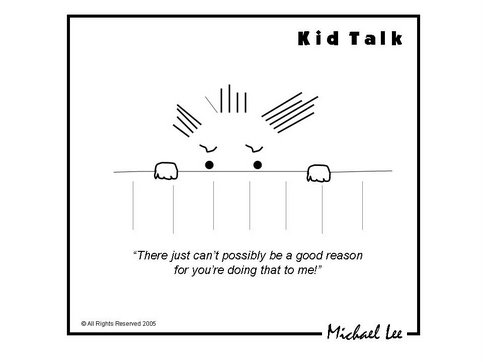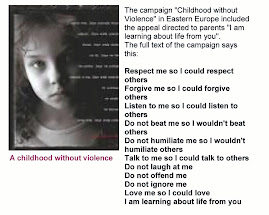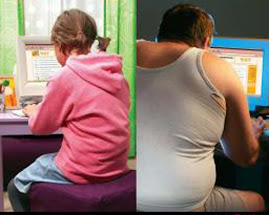

Friday, 3 August 2007
2007 08: EDITORIAL: Uncovering child abuse
NST Online. Columns. 29/7/07
THE shock and horror over the rise in child abuse almost everywhere have less to do with the fact that it happens at all but where and by whom.
In Ireland and the United States, offences against children were sensationally found to be endemic in church-run facilities, committed by men of the cloth. In the siege of the Lal Masjid in Islamabad earlier this month, many of the human shields suborned by the mad mullah Abdul Rashid Ghazi in his standoff against the Pakistan military were boys and girls. A recent study by Unicef and the Indian government adjudged two out of three children to be abused, giving the lie to the families and communities that were thought of as their guardians. In Malaysia, the worst offenders are not the dirty old men bearing sweets and trinkets, but mothers and fathers as seemingly ordinary as the ones next door.
Violence in the home is difficult to winkle out, shrouded as it usually is in a conspiracy of silence between perpetrator and victim, and sometimes abetted by a society that prefers not to know. The "don’t ask, don’t tell" syndrome constrains even the government’s willingness to intervene. Women, Family and Community Development Minister Datuk Seri Shahrizat Abdul Jalil’s first reaction to the latest alleged baby beating case in Johor Baru was disbelief at the egregious degree of parental neglect and dysfunction involved. She made a plea for family members to look out for the danger signs of "stress" that could whiplash into child abuse. Shahrizat’s ministry, although watchful of the cases that do come to its notice, is clueless about those that are not reported to the police or the hotlines and other services the Welfare Department provides.
Whether or not the government’s child protection mechanisms are adequate depends on how much abuse there actually is below its somewhat limited radar. The harming of minors under care can have causes and effects so complex that only psychologists can detect them. As in India, comprehensive research would almost certainly reveal the sort of mistreatment that was once unheeded, covered up or regarded as none of anyone else’s business. In India, too, an in-depth academic study was a precursor to the evolution of laws from a "needs-based" to a "rights-based" approach to child development. The deaths of Shearwel Ooi Ying Ying and others may or may not be due to an anomalous breakdown in the biological ties between parent and child. Either way, newspaper headlines of such heart-rending instances are no basis for future policy.
THE shock and horror over the rise in child abuse almost everywhere have less to do with the fact that it happens at all but where and by whom.
In Ireland and the United States, offences against children were sensationally found to be endemic in church-run facilities, committed by men of the cloth. In the siege of the Lal Masjid in Islamabad earlier this month, many of the human shields suborned by the mad mullah Abdul Rashid Ghazi in his standoff against the Pakistan military were boys and girls. A recent study by Unicef and the Indian government adjudged two out of three children to be abused, giving the lie to the families and communities that were thought of as their guardians. In Malaysia, the worst offenders are not the dirty old men bearing sweets and trinkets, but mothers and fathers as seemingly ordinary as the ones next door.
Violence in the home is difficult to winkle out, shrouded as it usually is in a conspiracy of silence between perpetrator and victim, and sometimes abetted by a society that prefers not to know. The "don’t ask, don’t tell" syndrome constrains even the government’s willingness to intervene. Women, Family and Community Development Minister Datuk Seri Shahrizat Abdul Jalil’s first reaction to the latest alleged baby beating case in Johor Baru was disbelief at the egregious degree of parental neglect and dysfunction involved. She made a plea for family members to look out for the danger signs of "stress" that could whiplash into child abuse. Shahrizat’s ministry, although watchful of the cases that do come to its notice, is clueless about those that are not reported to the police or the hotlines and other services the Welfare Department provides.
Whether or not the government’s child protection mechanisms are adequate depends on how much abuse there actually is below its somewhat limited radar. The harming of minors under care can have causes and effects so complex that only psychologists can detect them. As in India, comprehensive research would almost certainly reveal the sort of mistreatment that was once unheeded, covered up or regarded as none of anyone else’s business. In India, too, an in-depth academic study was a precursor to the evolution of laws from a "needs-based" to a "rights-based" approach to child development. The deaths of Shearwel Ooi Ying Ying and others may or may not be due to an anomalous breakdown in the biological ties between parent and child. Either way, newspaper headlines of such heart-rending instances are no basis for future policy.
Subscribe to:
Post Comments (Atom)



No comments:
Post a Comment